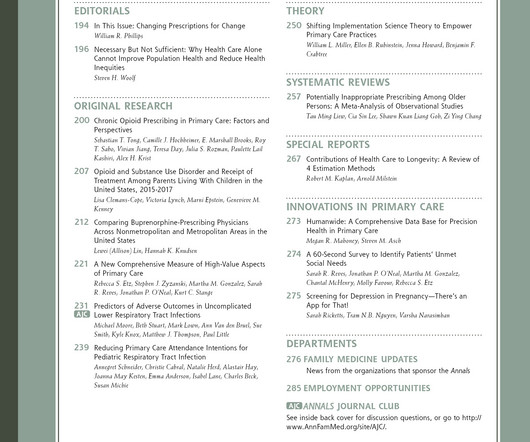Direct Primary Care - Role for the Future of Healthcare
The Direct Doctors Difference
AUGUST 18, 2021
The Direct Primary Care movement has picked up steam over the last seven years since we started Direct Doctors in RI. According to DPC Frontier, a site owned by a DPC physician/lawyer who was a founder of the movement, there are now over 1500 clinics doing pure Direct Care across the nation.












Let's personalize your content